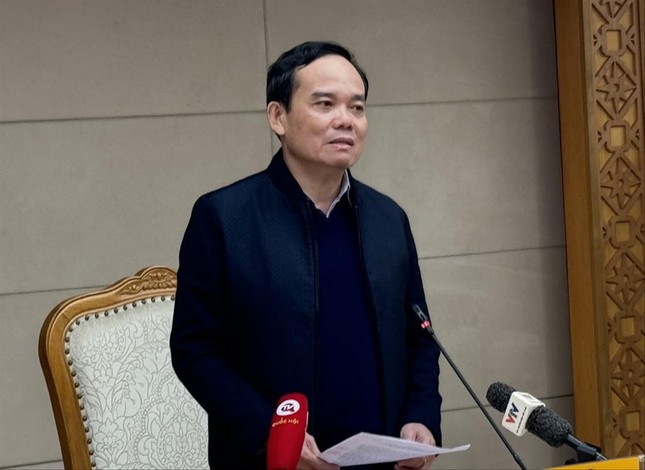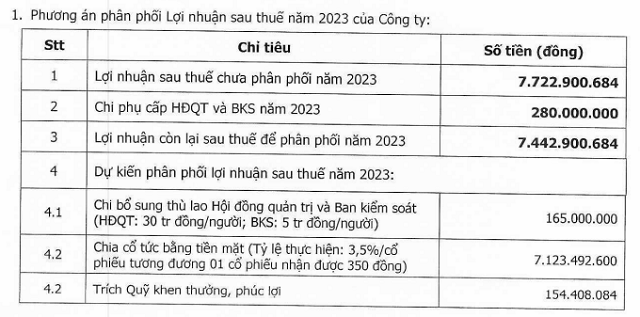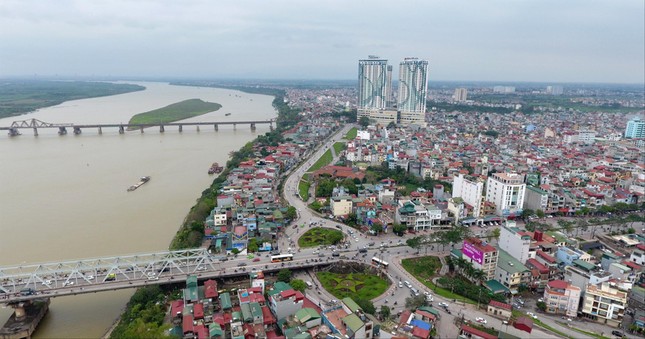19 district-level administrative units proposed not to be rearranged due to special characteristics
In the report at the meeting, Minister of the Ministry of Home Affairs Pham Thi Thanh Tra stated that so far, all 56 provinces and cities with districts and communes subject to rearrangement in the period 2023-2025 have sent comprehensive plans. The Ministry of Home Affairs has also given opinions on the implementation of the comprehensive plan of 56 localities.
According to Ms. Tra, the total number of district-level administrative units to be rearranged is 50, after the rearrangement is expected to reduce 14 units. The number of district-level administrative units is higher than the plan reported to the National Assembly Standing Committee. Meanwhile, the total number of communes to be rearranged is 1,243 units, after the expected rearrangement is reduced by 619 units. This expected number of rearrangements is higher than the plan reported by the Politburo, the National Assembly Standing Committee.

Some localities with a number of districts and communes that need to be rearranged like Hanoi, Ho Chi Minh City, Nghe An, Hai Phong (Illustration Image)
However, Minister of the Ministry of Home Affairs Pham Thi Thanh Tra stated that there are difficulties, limitations, and challenges. In which, the number of districts and communes proposed not to be rearranged due to their special characteristics is quite large (only the district level has 19 units). Ms. Tra suggested that, with these special characteristics, localities need to report specifically, closely follow the spirit of Resolution 35 of the National Assembly Standing Committee for explanation. In addition, there is not much time left, so Ms. Tra noted that localities need to make efforts to complete before October 2024 to prepare for Party congresses at all levels. Along with that, provinces and cities with a large number of districts and communes that need to be rearranged such as Hanoi, Ho Chi Minh City, Nghe An, and Hai Phong need to proactively resolve related issues.
Regarding the difficulties and challenges arising from the rearrangement, Ms. Tra suggested allocating, resolving the policy regime for officers, civil servants, and public employees affected by the rearrangement, ensuring the correct objects, transparency, and compliance with the Party’s guidelines and regulations. laws; review, make a list and assess the current situation, the use of headquarters in units, create favorable conditions for businesses and people in paperwork conversion due to changes made from the rearrangement…

Deputy Prime Minister Tran Luu Quang speaks at the meeting. Photo: PV
Participating in the discussion, Deputy Minister of Finance Vo Thanh Hung said that experience should be drawn from the previous phase, when the plan was approved but there was no rearrangement plan, so the rearrangement plan could not be implemented. “Now, along with building a plan to rearrange district-level administrative units, it is necessary to build a plan to rearrange assets. Along with that, we must suspend the approval of new investment, renovation, and upgrading of headquarters, works with districts, communes that have rearrangement plans,” Mr. Hung said, adding that the Ministry of Finance plans to support 20 billion VND per district and 500 million VND per communes to be merged.
Regarding the allocation of resources, representatives of the Ministry of Planning and Investment stated that, with the reported data of the Ministry of Home Affairs, based on Resolution 35 of the National Assembly Standing Committee, about 600 billion VND will be allocated for one-time support.
Respect the opinions from the grassroots
In the concluding session, Deputy Prime Minister Tran Luu Quang emphasized that about 60% of the work has been done, but the remaining 40% is very difficult, while there is not much time left, only about 6 months, so it requires great efforts and determination. Based on that, Deputy Prime Minister set out 5 principles for implementation. Among them, the procedure issue must be as streamlined as possible; whatever can be deferred should be deferred, provided that specific requirements are met; whatever is “stuck”, cannot be done right away, must be transferred to the next phase…
Especially, Deputy Prime Minister emphasized the principle of respecting opinions from the grassroots. Therefore, the implementation process should not be mechanical, because whether it is happy or suffering, it is the responsibility of the local level and how to implement it. “The implementation and mobilization of officials, civil servants to retire early, then move to work elsewhere are done by localities… Therefore, it is necessary to respect our grassroots comrades; if not, we will fail,” Mr. Tran Luu Quang emphasized, at the same time noting the need for good communication through the media and other social platforms to create dissemination, unanimity among the people.
At the meeting, representatives of the Ministry of Public Security said that when rearranging administrative boundaries, there are changes in names. Some citizens’ information will change, so the entire system of population data must be updated with the coordination of citizens, the Ministry of Justice to update the entire system. According to representatives of the Ministry of Public Security, although there is no requirement for citizens to change their identity cards, for convenience in transactions, representatives of the Ministry of Public Security recommend citizens to change their identity cards according to the new place name. The fee will be waived according to the regulations.









































